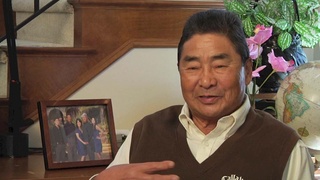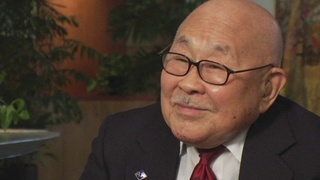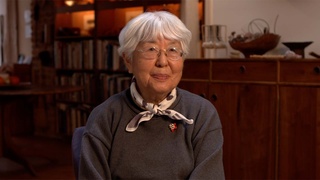Interviews
Grateful for The Quakers’ help in camp and finding jobs outside of camp
The Quakers were wonderful people; they came – they were the first people, I think, to come voluntarily to our camp, and offered to help us to find – to apply to college. We had no idea how to do this, right? Brought applications to various colleges and universities, and for jobs in the outside world. And so I think many, many of us were helped – were, you know, aided by their kindness, and – and in leaving camp too… I think there were three ways that we could leave camp: whether we – to get accepted by a college, to – for a job, or to volunteer for the army.
I couldn’t get accepted to any college or university, and so – I think his name is Bob O’Brian – this Quaker said, “Well, you know, they’re looking for workers in the cafeteria – or in the dining hall – at the Unviersity of Cincinnati. Would you like to apply for one of those jobs?” And I said, “Well yeah, sure,” you know, it was the closest I could get to a university, and so I got a job as a worker in the dining hall, and I left with my brother for Cincinnati.
Date: August 7, 2018
Location: California, US
Interviewer: Sharon Yamato
Contributed by: Watase Media Arts Center, Japanese American National Museum












